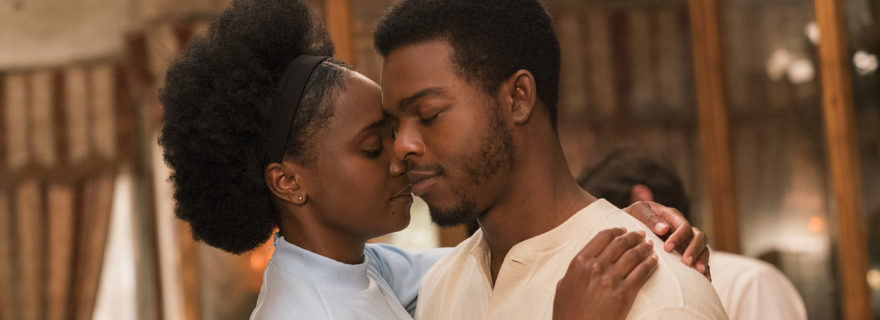If Beale Street Could Talk
Movie Rating:
3.5
Moonlight may have been an impossible act for writer/director Barry Jenkins to follow. Few films have hit the culture at just the right time and in just the right way like that one. The success guaranteed that he could do whatever he wanted next and also that it would inevitably fail to live up to expectations. With If Beale Street Could Talk, Jenkins has made a passion project about a book he adored, and the filmmaker’s considerable talents are indeed on display.
Unfortunately, Jenkins was perhaps a little too enamored with his source material to leave it behind in pursuit of his own vision. What emerges is a perfectly satisfying picture that often feels a bit static and overdrawn on the screen. It’s still filled with strong performances, beautiful images, and powerful moments, but is perhaps not destined to floor viewers with the same impact that Moonlight did.
Based on James Baldwin’s 1974 novel of the same name, Jenkins’ film follows a love story and sociological tragedy between two childhood friends who fell for each other. Their names are Fonny (Stephan James) and Tish (KiKi Layne). Their relationship is pure but the world around them isn’t. Not long after they officially become a couple, Fonny is arrested for a rape that Tish knows for a fact he didn’t commit. They’re powerless to stop the depressing spiral of tragedy that follows, despite the love that keeps them bound. It’s worth noting that he’s 19 and she’s 22 at the time – kids essentially, learning that their discovery of the love that makes the world such a beautiful place comes alongside harsh and unforgiving realities that make it cruel and unforgiving as well.
The themes in play in the film are timely to the current political climate and also tragically timeless. Jenkins explores them with empathy and hope. No matter how harrowing the story gets, the love Jenkins feels for his characters (every last one of them) comes through beautifully. The cinematography from James Laxton is as gorgeously composed and evocatively lit as in Moonlight, but with new tricks. In particular, Jenkins borrows a tic out of the late Jonathan Demme’s playbook and uses plenty of subjective cameras with characters making eye contact with the lens in a way that adds an extra layer of identification and humanity. It’s lovely to see Jenkins use that technique. Few directors had such empathy and humanity for their characters and worlds as Demme did. It’s something the cinematic landscape needs more of.
Jenkins of course also works wonderfully with actors and fills every role with a perfectly cast talent delivering a performance that could well earn them little gold statues. (Regina King in particular feels locked in for an awards run.)
The only problem I have with If Beale Street Could Talk is that Jenkins possibly loves this story and these characters and actors a little too much. While Moonlight was a film composed of small human moments, it was also a work of concise storytelling with a constant sense of purpose. If Beale Street Could Talk lingers. Scenes play out like miniature stage plays in ways that give the actors freedom to explore, but drag on for viewers. The non-chronological narrative structure seems almost a little too determined to cram in as much of the novel as possible while losing cinematic momentum in the process. Even Jenkins’ love for all his endearing supporting characters leads to roles and scenes that work in isolation but feel unnecessary to the whole.
If Beale Street Could Talk remains a wonderful and potent picture, but luxuriates too long on all the little details and overstays its welcome. At least that’s true for me. The fawning praise coming from every other corner of the Toronto International Film Festival suggests that I may be lost or caught the film at the wrong time.





